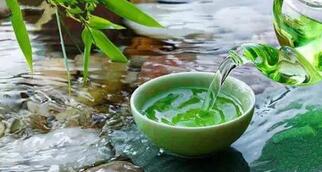It is well known that drinking tea has many benefits for the human body. Tea can refresh the mind, relieve fatigue, aid digestion, quench thirst, and promote diuresis and swelling reduction. Green tea and oolong tea are particularly better than black tea, as they also have anti-cancer properties. Tea helps regulate acid-base balance and is rich in vitamins C, E, carotene, niacin, potassium, calcium, selenium, and fluoride, all of which benefit the kidneys and overall health.

However, some have pointed out that tea contains caffeine, with one cup of tea containing about 30% to 50% of the caffeine found in a cup of coffee. Excessive consumption of strong tea, which contains even more caffeine, has been shown to potentially cause normal human cells to mutate, increasing the risk of cancer. Moreover, overconsumption of strong tea can overstimulate the nervous system, burden the heart and kidneys, promote gastrin secretion, and induce peptic ulcers. Additionally, tannic acid in tea can bind with iron, reducing the absorption of iron, an essential factor for hematopoiesis.

The timing of tea consumption is also important. It is best not to drink tea immediately after a meal; waiting 30 minutes to an hour is ideal. The amount of tea consumed at one time should also be moderate, typically 300–400 ml. Distilled water is the best choice for brewing tea. Boiling the water for an additional 2–3 minutes and letting it cool slightly before brewing helps preserve the tea's vitamin C content and maintains its characteristic color and aroma. It is best to drink the tea immediately after brewing.

Tea can be categorized as cooling or warming based on its processing methods. Those with a hot constitution should drink cooling teas, while those with a cold constitution should opt for warming teas. In the evening, it is best to drink black tea or red tea. Green tea, being unfermented, contains higher levels of tea polyphenols and is more stimulating, whereas red tea, being fully fermented, is gentler. For those with weak spleen and stomach, adding milk to red tea can help warm the stomach. People who are emotionally sensitive, have poor sleep, or are physically weak should avoid drinking tea in the evening or consume it in moderation. When drinking tea at night, use fewer tea leaves and avoid brewing it too strong. It is best to drink tea after dinner, as consuming it on an empty stomach may inhibit gastric acid secretion, hinder digestion, and even cause palpitations or headaches, known as "tea drunkenness."